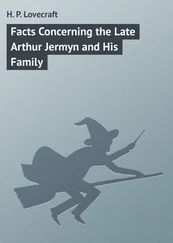Margaret Oliphant - A Country Gentleman and his Family
Здесь есть возможность читать онлайн «Margaret Oliphant - A Country Gentleman and his Family» — ознакомительный отрывок электронной книги совершенно бесплатно, а после прочтения отрывка купить полную версию. В некоторых случаях можно слушать аудио, скачать через торрент в формате fb2 и присутствует краткое содержание. Жанр: foreign_prose, на английском языке. Описание произведения, (предисловие) а так же отзывы посетителей доступны на портале библиотеки ЛибКат.
- Название:A Country Gentleman and his Family
- Автор:
- Жанр:
- Год:неизвестен
- ISBN:нет данных
- Рейтинг книги:5 / 5. Голосов: 1
-
Избранное:Добавить в избранное
- Отзывы:
-
Ваша оценка:
- 100
- 1
- 2
- 3
- 4
- 5
A Country Gentleman and his Family: краткое содержание, описание и аннотация
Предлагаем к чтению аннотацию, описание, краткое содержание или предисловие (зависит от того, что написал сам автор книги «A Country Gentleman and his Family»). Если вы не нашли необходимую информацию о книге — напишите в комментариях, мы постараемся отыскать её.
A Country Gentleman and his Family — читать онлайн ознакомительный отрывок
Ниже представлен текст книги, разбитый по страницам. Система сохранения места последней прочитанной страницы, позволяет с удобством читать онлайн бесплатно книгу «A Country Gentleman and his Family», без необходимости каждый раз заново искать на чём Вы остановились. Поставьте закладку, и сможете в любой момент перейти на страницу, на которой закончили чтение.
Интервал:
Закладка:
"You did everything for her, Theo?"
"All that I could. I saw him laid upon his bed. There was nothing more for me to do."
"Are you very tired, my boy? You have done so much."
"Not tired at all. Come out with me a little. I can't go in yet. It is a lovely night."
"Oh, Theo, lovely and full of light! – the trees, and the bushes, and every blade of grass sheltering something that is living; and yet death, death reigning in the midst."
She leaned her head upon his arm and cried a little, but he did not make any response. It was true, no doubt, but other thoughts were in his mind.
"She will have great trouble with that child, when he grows up," he said, as if he had been carrying on some previous argument. "It is ridiculous to have him always hanging about her, as if he could understand."
Mrs. Warrender started, and the movement made his arm which she held tremble, but he did not think what this meant. He thought she was tired, and this recalled his thoughts momentarily to her. "Poor mother!" he said; "you sat up for me, not thinking of your own fatigue and trouble, and you are over-tired. Am I a trouble to you, too ?" His mind was still occupied with the other train of thinking, even when he turned to subjects more his own.
"Do you know," she said, not caring to reply, "it is the middle of the night?"
"Yes, and you should be in bed. But I couldn't sleep. I have never had anything of the kind to do before, and it takes all desire to rest out of one. It will soon be daylight. I think I shall take my bath, and then get to work."
"Oh no, Theo. You would not work, – you would think; and there are some circumstances in which thinking is not desirable. Come out into the moonlight. We will take ten minutes, and then, my dear boy, good-night."
"Good-morning, you mean, mother, and everything new, – a new life. It has never been as it will be to-morrow. Have you thought of that?" She gave a sudden pressure to his arm, and he perceived his folly. "That I should speak so to you, to whom the greatest change of all has come!"
"Yes," she said, with a little tremor. "It is to me that it will make the most difference. And that poor young creature, so much younger than I, who might be my child!"
"Do you think, when she gets over all this, that it will be much to her? People say – "
"That is a strange question to ask," she said, with agitation, – "a very strange question to ask. When we get over all this, – that is, the shock, and the change, and the awe of the going away, – what will it be then, to all of us? We shall just settle down once more into our ordinary life, as if nothing had happened. That is what will come of it. That is what always comes of it. There is nothing but the common routine, which goes on and on for ever."
She was excited, and shed tears, at which he wondered a little, yet was compassionate of, remembering that she was a woman and worn out. He put his hand upon hers, which lay on his arm. "Poor mother!" he murmured, caressing her hand with his, and feeling all manner of tender cares for her awake in him. Then he added softly, returning in spite of himself to other thoughts, "The force of habit and of the common routine, as you say, cannot be so strong when one is young."
"No," she said; and then, after a pause, "If it is poor Lady Markland you are thinking of, she has her child."
This gave him a certain shock, in the softening of his heart. "The child is the thing I don't like!" he exclaimed, almost sharply. Then he added, "I think the dawn must be near; I feel very chilly. Mother, come in; as you say, it is the best thing not to think, but to go to bed."
CHAPTER VII
The morning rose, as they had said to each other, upon a new life.
How strange it is to realise, after the first blow has fallen, that this changed life is still the same! When it brings with it external changes, family convulsions, the alteration of external circumstances, although these secondary things increase the calamity, they give it also a certain natural atmosphere; they are in painful harmony with it. But when the shock, the dreadful business of the moment, is all over, when the funeral has gone away from the doors and the dead has been buried, and everything goes on as before, this commonplace renewal is, perhaps, the most terrible of all to the visionary soul. Minnie and Chatty got out their work, – the coloured work, which they had thought out of place during the first week. They went in the afternoon for a walk, and gathered fresh flowers, as they returned, for the vases in the drawing-room. When evening came they asked Theo if he would not read to them. It was not a novel they were reading; it was a biography, of a semi-religious character, in which there were a great many edifying letters. They would not, of course, have thought of reading a novel at such a time. Warrender had been wandering about all day, restless, not knowing what to do with himself. He was not given to games of any kind, but he thought to-day that he would have felt something of the sort a relief, though he knew it would have shocked the household. In the afternoon, on a chance suggestion of his mother's, he saw that it was a sort of duty to walk over to Markland and ask how Lady Markland was. Twelve miles – six there and six back again – is a long walk for a student. He sent up his name, and asked whether he could be of any use, but he did not receive encouragement. Lady Markland sent her thanks, and was quite well ("she says," the old butler explained, with a shake of the head, so that no one might believe he agreed in anything so unbecoming). The Honourable John had been telegraphed for, her husband's uncle, and everything was being done; so that there was no need to trouble Mr. Warrender. He went back, scarcely solaced by his walk. He wanted to be doing something. Not Plato; in the circumstances Plato did not answer at all. When he opened his book his thoughts escaped from him, and went off with a bound to matters entirely different. How was it possible that he could give that undivided attention which divine philosophy requires, the day after his father's funeral, the first day of his independent life, the day after – ! That extraordinary postscript to the agitations of yesterday told, perhaps, most of all. When the girls asked him to read to them, opening the book at the page where they had left off, and preparing to tell him all that had gone before, so that he might understand the story ("although there is very little story," Minnie said, with satisfaction; "chiefly thoughts upon serious subjects"), he jumped up from his chair in almost fierce rebellion against that sway of the ordinary of which his mother had spoken. "You were right," he said to her; "the common routine is the thing that outlasts everything. I never thought of it before, but it is true."
Mrs. Warrender, though she had herself been quivering with the long-concentrated impatience for which it seemed even now there could be no outlet, was troubled by her son's outburst, and, afraid of what it might come to, felt herself moved to take the other side. "It is very true," she said, faltering a little, "but the common routine is often best for everything, Theo. It is a kind of leading-string, which keeps us going."
The girls looked up at Theo with alarm and wonder, but still they were not shocked at what he said. He was a man; he had come to the Warren from those wild excitements of Oxford life, of which they had heard with awe; they gazed at him, trying to understand him.
"I have always heard," said Minnie, "that reading aloud was the most tranquillising thing people could do. If we had each a book it would be unsociable; but when a book is read aloud, then we are all thinking about the same thing, and it draws us together;" which was really the most sensible judgment that could have been delivered, had the two fantastic ones been in the mood to understand what was said.
Читать дальшеИнтервал:
Закладка:
Похожие книги на «A Country Gentleman and his Family»
Представляем Вашему вниманию похожие книги на «A Country Gentleman and his Family» списком для выбора. Мы отобрали схожую по названию и смыслу литературу в надежде предоставить читателям больше вариантов отыскать новые, интересные, ещё непрочитанные произведения.
Обсуждение, отзывы о книге «A Country Gentleman and his Family» и просто собственные мнения читателей. Оставьте ваши комментарии, напишите, что Вы думаете о произведении, его смысле или главных героях. Укажите что конкретно понравилось, а что нет, и почему Вы так считаете.












